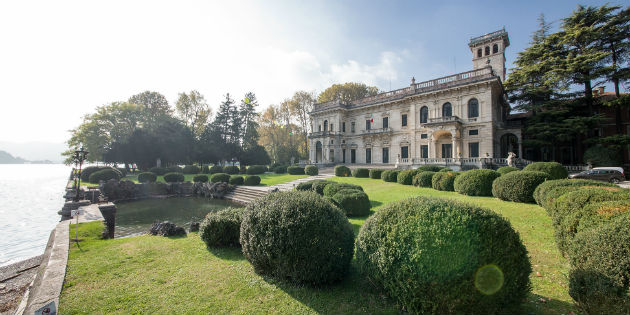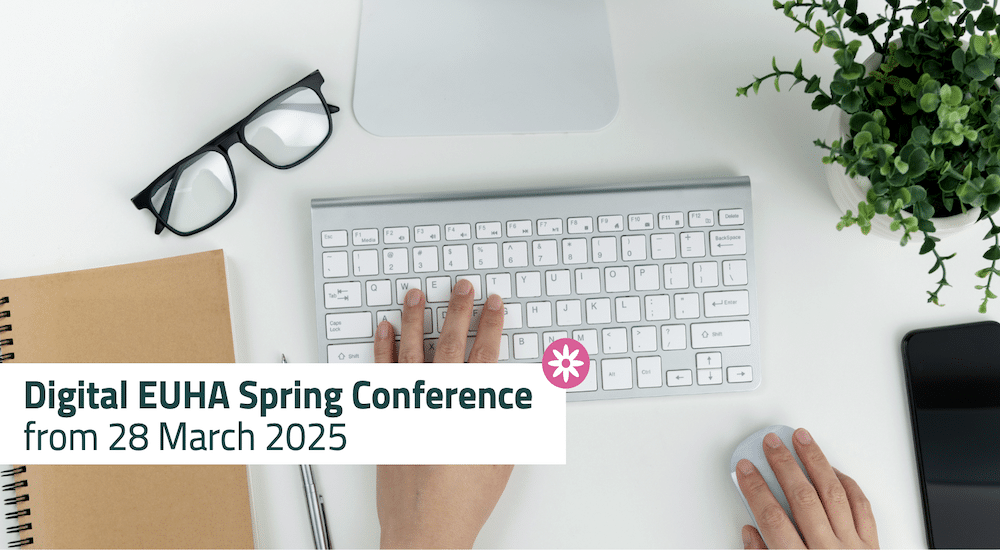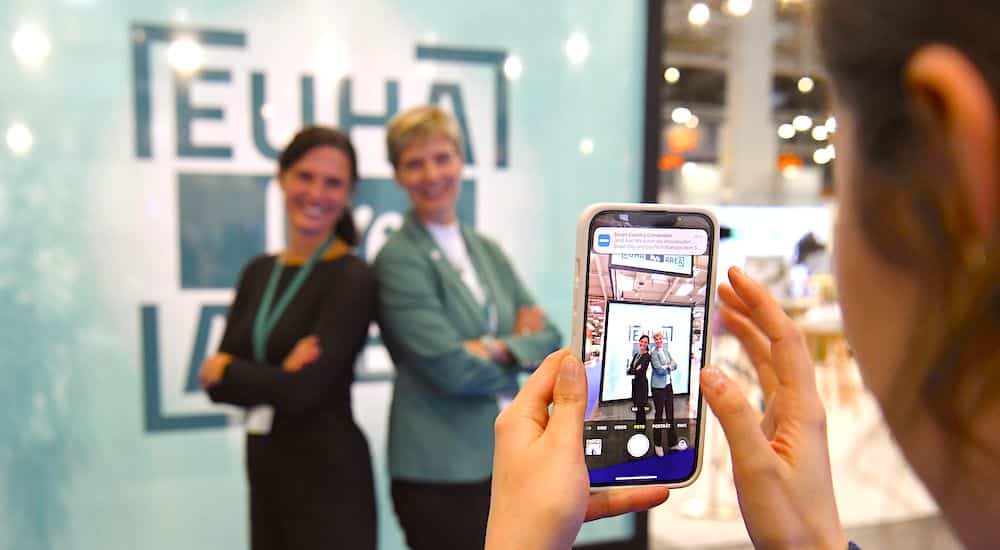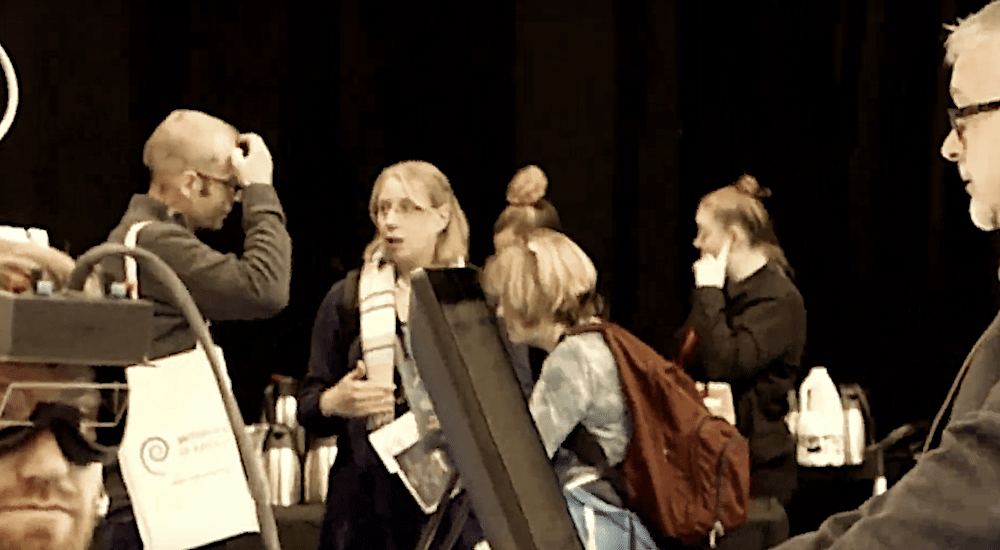Italy's Lake Como Conference gives hearing scientists a sense of belonging
HEAL 2018
June brings the return of an enduring hearing science meeting that examines research results under the powerful microscope of clinical experience and the light of technological advances.

Its organisers, interviewed by Audiology Worldnews, see these HeAL (Hearing across the Lifespan) events as an ever-expanding edifice of knowledge that has widened its focus from screening for the very young to issues such as cognitive decline and the latest e-Health technology.
HeAL 2018 will offer, say its organisers, challenging new data during a hearing science overview set in the Lake Como area of northern Italy, its spectacular view over nature and grand villas so pretty that the poet Shelley described it as “exceeding anything I ever beheld in beauty.”
These now biennial gatherings, known as HeAL since 2014, date back to the 1998 European Consensus of Neonatal Hearing Screening, a meeting in Milan which inspired a core of experts to periodically recharge their mission to improve early detection and intervention, “bringing together all those who are really innovating and those who are improving technology,” as founding organiser and current HeAL president, Dr. Ferdinando Grandori, explains.
A translational function
This veteran from the Polytechnic of Milan’s Institute of Electronics, Information Engineering and Telecommunication (CNR-IEIIT), underlines HeAL’s translational role in fusing cutting-edge hearing research and practical clinical experience, stressing that “one of the specific aspects of these conferences is precisely to link up those who are investing in development and those who are using.”
A “completely self-sustaining initiative”, the event’s organisation benefits from keeping a fixed rendezvous in Cernobbio, a European beauty spot Grandori satisfyingly considers ideal for “people coming from all over the world who find a tranquil, cosy place on the lake that gives the sense of belonging to a community. It is a very special initiative.”
This self-financing nature of HeAL is partly achieved through an exhibition “not small from a European perspective because typically there are from 10 to 17 manufacturers that are well accepted by the delegates, while all the big manufacturers are represented by the CEO or general director of the international corporation, not locally from Italy,” points out the HeAL 2018 president.
Around 450 delegates are expected this June from an estimated 55 countries, although a definitive breakdown of registration figures is not calculated until a few weeks before the event. Oral and poster presentations number over 300. Grandori points out that just over half of delegates check in from the USA.
Kicking off early afternoon on Thursday, June 7, with an evaluation of the WHO hearing-impairment grading system by Indiana University Professor Larry Humes, HeAL 2018 will highlight three increasingly-important emerging areas for specialists and professionals: e-Health and m-Health in aspects ranging from testing to education and even communication between healthcare providers and patients. Also spotlighted are listening effort and fatigue, with research presentations delving into the relationship between theory, lab measurements, and real-life experience.
In addition to keynote and special-session interest in mechanisms, effects, and medical issues involved in hearing loss, the traditional HeAL focus on screening and early identification will be accompanied by copious information on intervention and rehabilitation strategies. Talks on the epidemiology of hearing loss will feature some highly-valuable longitudinal studies on cause and effect of hearing loss, including research on cognitive decline, with a focus on workplace and environmental factors.
Netherlands Longitudinal Study – smoking a factor
The results of the much-anticipated 10-year Netherlands Longitudinal Study on Hearing were flagged up by Dr. Sophia E. Kramer, one of HeAL’s two-member scientific advisory board, as key to at least three of the event’s presentations.
“What may be different to other longitudinal studies is that we begin with the age of 18, rather than older people among whom hearing loss is more prevalent. What we’ve found is that the decline in hearing accelerates already at the age of 50, which is considered pretty young. We’ve been looking at how fast this decline is and what factors are associated with it; in one of the abstracts, we found that smoking is one of the factors,” said this leading neuropsychologist based at Amsterdam’s VU University Medical Centre.
One of Dr. Kramer’s main focuses is the association between hearing loss and psychosocial health—factors such as loneliness, depression, and anxiety—an area her abstracts at HeAL will also illuminate: “We know that cochlear implant users have far worse hearing than people who use hearing aids so following the argument that the more severe your hearing loss, the worse your psychosocial health, we were expecting those with cochlear implants to have worse psychosocial health, but what we observed was really the opposite. So, cochlear implants were, let’s say, healthier, in getting psychosocial health better than hearing aids.”
Does this underline the advantages of cochlear implants? “Yes, but of course there are issues that need further investigation, such as whether people considered eligible for an implant have a different personality, and there is the factor we think may be underlying the outcome we observed, which is that the rehabilitation trajectory of people with cochlear implants is much more extended compared to the rehab of people with hearing aids,” explained Dr. Kramer.
This expert also confessed to a growing awareness of a gap in realism between laboratory research into cognitive and psychosocial areas and “what is really happening in “daily-life listening”.
“I am discovering more and more factors that influence someone’s hearing status. It’s through looking at listening effort, another main theme of the conference, and the factors causing effort for listening, that we started to realise that the tests we are using in the labs are too simple. Hearing loss is not something that exists in isolation so we are becoming more and more aware of the fact that real life is much more complex than we simulate or what we do in the lab.”
e-Health and m-Health
Dr. Kramer’s view that “we are really at the very beginning of e-Health in audiology”, is shared by HeAL’s other scientific adviser, Dr. Gabriella Tognola, a senior researcher at the Polytechnic of Milan’s CNR-IEIIT, though this expert confidently claims that current e-Health technology is mature enough for use in clinical settings.
“I am 100% convinced that the technology that is available right now will fulfil all the needs of the clinician. It is probably just a matter of recognition or acceptance that it is of interest to use such technologies,” she affirmed, although Dr. Tognola balked at the idea that e-Health might eventually allow hearing patients to bypass primary or secondary health treatment: “No, no, not in any case, but this technology will help the clinician to better and faster diagnoses, to plan more rationalised treatment plans.”
This will be the third HeAL conference to deal with e-Health issues. “It is not an occasional interest at HeAL so if you look at the trend, there is a core of speakers dealing with e-health in hearing science.”
Boosting the clinician’s ability to manage information is at the heart of Dr. Tognola’s own presentation in this year’s “Lake Como Conference” (as they have become known), on “Cognitive Computing for the Digital Management of Clinical Data of the Aged Cochlear Implant Patient.” “The objective is to apply a new technology set called cognitive computation to make the computer reason in a way that resembles the cognitive process of we human beings,” she points out.
“This reasoning was applied to extract clinical information from texts that were generated by using natural language. If the clinician reads the medical reports from visits of cochlear-implant patients, he can get useful information, signs, symptoms, previous diagnoses, treatments, etc., and the idea is to have such a cognitive computational system, in other words a computer that can read this text and understand the meaning of the text and extract the useful information automatically,” continued Tognola.
Big Poster session
A Friday (June 8) evening poster session will be held of over 90 research focuses on auditory perception, processing, and cognition; listening effort; genetics; epidemiology; auditory neuropathy spectrum disorders; cannabis use; advances in testing; tinnitus; newborn hearing and screening; early hearing detection and intervention; music listening; paediatric audiology; cochlear implants; e-health; ageing issues; citomegalovirus; family perspectives.
Something, indeed, for pretty much everyone in the academic hearing community.
Photos: © HeaL


